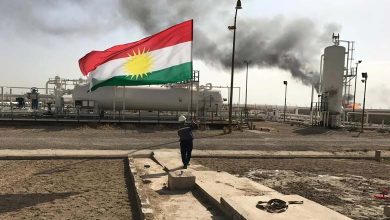US report predicts growing influence of Qatar for this reason – Details

In the face of the pressures experienced by the troubled international oil and gas market as a result of the Russian-Ukrainian war that will take place next Monday in its third month, Qatar and Iran, the second and third largest suppliers of natural gas in the world, respectively, after Russia, have emerged as a potential alternative for Moscow, which is expected to enter a new war with Finland and Sweden on the background of their accession to the North Atlantic Treaty Organization (NATO), thus prolonging the confusion of the European markets, especially the oil and gas markets.
The New York Times predicted that Qatar’s influence will grow even more, due in part to the war in Ukraine, noting that “while the United States and its European allies seek to deprive Russia of its income from oil and gas, the West is looking to Qatar as an alternative source of fuel to heat European homes, cook food and generate electricity”.
Although Qatar cannot immediately ship much additional gas to Europe because most of its production is contracted to go elsewhere under futures contracts, it is investing tens of billions of dollars to increase production by about two-thirds by 2027, according to the US newspaper.
Over the past quarter century, the Gulf state of Qatar has sent increasing amounts of natural gas to a growing list of customers around the world, reaping deep wealth, and gaining geopolitical significance it otherwise lacked.
Saad al-Kaabi, Qatar’s Minister of State for Energy Affairs and president of the state-owned Qatar Energy Company, said in an interview with the US newspaper: “About half of this gas may go to Europe”, but revealed that “about 85% of Qatar’s current production is restricted by long-term agreements (futures), mostly in Asia”.
Years before the war began, al-Kaabi said Qatar had begun a $45 billion project to build two new gas plants and increase annual production capacity by 64%. The gas will enter the market in 2026 and will likely be divided among buyers in Europe and Asia, according to the newspaper.
Chinza Bianco, an analyst at the European Council on Foreign Relations, told the New York Times: All indications are that “Qatar will become a very important source of liquefied gas to Europe”.












